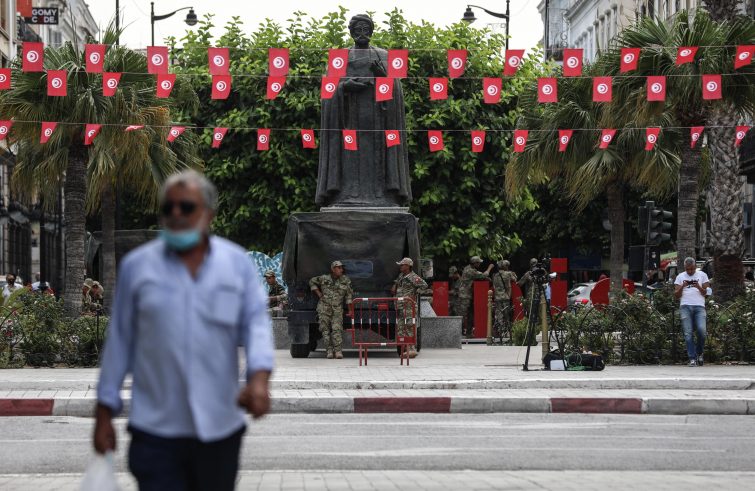
“Things have returned to normal. Citizens resumed their work activities. The President of the Republic requested public administrations to stop work for two days. But the situation throughout the country has normalised. Some groups are gathered here and there, but they are just a few people.” Father Léonce Zinzéré, Vicar General of the Catholic Archdiocese of Tunis, provides an overview of the situation to SIR from Tunisia, after Tunisian President Kaïs Saïed unexpectedly announced in a televised speech to the nation that he would take over executive powers and appoint a new Prime Minister. Islamic opposition party Ennahda branded it a coup, and hundreds of protesters took to the streets on Sunday. “I would hardly call it a coup,” Father Zinzéré remarked. “I have been walking around Tunis and I have not seen any soldiers in the streets. I saw police officers outside the French embassy, but this is perfectly normal. In my opinion, the President’s decision is designed to improve living conditions in the country.”
 What is the greatest risk for Tunisia?
What is the greatest risk for Tunisia?
No one can predict the future. However, it is our understanding that the vast majority of Tunisians support the President’s decisions. This is what emerges when talking to friends, to people in the streets. Some say that these decisions are against the Constitution, but it is not for us to judge. For sure, living conditions are deteriorating every day, with growing poverty and soaring commodity prices.
People are expecting some sign to stimulate recovery. At this stage, it makes no difference who takes action, as long as it is forthcoming.”
You mentioned poverty. What’s the economic situation in the country today?
The pandemic has only aggravated an unfavourable economic scenario. People are becoming increasingly poor. Food prices in the markets have risen twice as much. There is a saying here: ‘everything increases except wages, and everything decreases except prices’. The living conditions are tough. This can be seen in Tunis, but the situation is worse elsewhere in the country.
The pandemic has aggravated the crisis: many people have lost their jobs. Some are being paid half of what they were paid before. There is an urgent need to improve economic conditions.
What about young people? More young people are deciding to leave the country. Is this a worrying development?
It is. The Tunisian President has repeatedly addressed the situation of young people. The issue is debated also by political parties. Many youths, especially university graduates, are protesting about unemployment outside government ministries.
Everyone is worried, but what concrete action is being taken?
That’s the question, but it remains unanswered. I believe that young people have high expectations of this country’s leaders.
What are their demands? And what are the hopes of the small Church of Tunisia for this country?
Our presence in Tunisia is above all one of moral support. I have many Tunisian friends with whom we share moments of daily life. As known, the local Church is poor and has few resources. We are a small Church, composed mainly of non-nationals. The best we can do is help people not to lose hope in the future. Caritas is working hard to provide assistance, especially for the purchase of medicines and foods. The Italian Bishops’ Conference has provided funding for a number of projects. Indeed, Caritas Tunisia is operating only thanks to the support of the Italian Bishops. We are very grateful to the Italian Church for this. The people expect their national leaders to effectively rebuild Tunisia’s future. In practical terms, the best the Church can do at this juncture is to help Tunisia never extinguish the beacon of hope for the future.









